2002-09-07 11:24
(Interview) Pusan to be equipped with tools
Interview with Wang Song, president of China Shipping Korea
China Shipping (Korean agent : China Shipping Korea) is one of the shipping companies which were becoming distinguished from 21st century. While launching various new services and deploying newly built vessels in the trades, they made their decision to use the Port of Pusan as a Northeast Hub port. (Pusan is vying to become a major hub port in Northeast Asia.) Recently reported statistics from the Port of Pusan showed 40% of container cargoes through the port in 2001 were transit cargoes.
Some worry about transit cargoes growing so fast. China Shipping was established in 1997 when Hong Kong returned to China. Reciting a Chinese proverb, the son is younger than his parents, Mr. Wang said China Shipping goes way back to 1872 when Mr. Lee Hong Jang founded the Merchant Bureau. Later it was to become a union of several provincial shipping companies in China such as the Shanghai Shipping Group, Guangzhou Shipping Company, Dalian Shipping Company, China Shipping International Marine Technique and Zhong Jiao Marine Industry. As pioneer in founding China Shipping, Mr. Wang is proud of being a member of China Shipping.
China Shipping Korea was launched as a Korean agent for China Shipping in April 1999 as a joint venture company.
Chairman of China Shipping, Mr. Lee Kuk Rin, regarded the Korean market as very important and sent Mr. Wang to work in the transportation dept. in the Korean headquarters. With full support from the Chinese headquarters, China Shipping Korea started to grow.
After three years, China Shipping Korea recorded 260 thousand cargoes during the first half of this year. It expects to handle 400 thousand cargoes in total including 300 thousand transit cargoes by years end, though those numbers cannot be guaranteed due to market conditions.
Under the circumstances, Mr. Wang expects China Shipping Korea to have its own container-dedicated terminal in Pusan as its cargo handling numbers hit 400 thousand TEU annually. As China Shipping actively participates in operating regional terminals in Europe and the US, it hopes to invest in Korea as well if the situation permits.
-Many factors must have influenced your decision to move your hub port to Pusan from Yokohama and Osaka. Would you explain more about this?
Mr. Wang : “Well, there is no need for referring to the geographical location of Port of Pusan. The location to extend to the Ocean is the most important factor to choose a hub port. And, Japan has been suffering from a long depression; cargoes to and from Japan have been affected by the situation. On top of it, high terminal operating costs in Japanese ports made the decision easier.
You can’t say that ship-owners always decide on hub-ports by single factors only. They always weigh many factors concerning each terminal, such as operating costs, service quality and efficiency. Finally they chose the one from which best suits their needs.”
- I heard Korea Express has been fully responsible for stevedoring jobs for your company, China Shipping. So, how long have you been working together?
“Since 2000, we have worked together. All of our cargoes from Pusan are handled by Korea Express. Before then, we worked with the Dongbu Corporation. I am thankful for their well done work, even now. However, we needed a larger terminal when we were deploying large newly-built vessels in 2000. That’s why we switched to work with Korea Express.
Mr. Wang, however, regarded both the Dongbu Corporation and Korea Express as partners. He thought they would require both of these companies to expand their service territory to door-to-door services with trucking and air services.
He also added his personal opinions that this door-to-door service might be expanded to inland China if South and North Korea unite, a boon for both Koreas.
- The worlds number 5 container port, the Shanghai development project, finally launched last July when Yangsan first phase container terminal construction started. Just as the Port of Shanghai announced, if they build 50 berths by 2020, what effect would the Port of Pusan undergo in their hub port title?
Mr. Wang: For between 5 and 10 years while the Port of Shanghai is under construction, everything would be fine, without any other bad side effects. After that period, however, nobody can assert what will happen. Still now, port service in China is behind Korea in efficiency and service. I think China needs prepare on the software side as well as hardware. Shanghai will be equipped with outstanding competitiveness when the development plan is complete. At present, China is improving with better and better service, competitiveness and efficiencies. To stay in the running, Korea has to continue to develop its port conditions more and more.
What would you say about the problems of the Port of Pusan as a hub port?
Mr. Wang : Mostly, we have been satisfied with the service there. In some areas though, we have experienced inconveniences.
First of all, the stevedoring equipment there is in short supply. Each berth is allowed to have only three gantry cranes. It is obviously falling behind Japan in operating efficiency; they have been equipped with 5-6 cranes per berth. I think this is the results of no one expecting that cargoes would grow like they have. With bigger vessels, more containers are moving through the seas. Without adding more gantry cranes, you can’t expect higher operating efficiencies in Pusan. China Shipping has suggested for two years that stevedoring companies add more gantry cranes; we finally got a positive answer that they will invest in more by the end of this year. But, it must be lots of loss when you think of time costs.
And heavy traffic in downtown Pusan and lack of vehicles inside the container yard also should be pointed out. Sometimes, transit cargoes require passing through downtown Pusan to move to another terminal. Heavy traffic there always takes more time. As a minor thing, berths are deep enough to accommodate larger vessels.
In spite of all this, we are satisfied with the overall service in Pusan, including customs clearance.
During three years and three months of life in Korea, Mr. Wang finds the shipping industry in Korea is strongly bonded economically to the state in export-oriented policies.
Except in 1997 when Korea suffered from an economic crisis, global carriers rushed to deploy mother vessels to Korea with its flourishing economy. This strong competitiveness in Korea brought about rates below operating costs. Some ship-owners seriously had to rethink vessels in the trade.
He advocated fair competition among shipping companies and cooperation between government and liners. His idea is that because malignant competition damaged shipping companies while only shippers enjoyed the benefits, shipping companies need to cooperate and the government also needs to be concerned about the problem.
-As of December 2001, China finally entered the WTO. Ten yeas have passed since Korea and China made their official ties. All things considered, what advice would you have for the Korean people?
Mr. Wang : In one Chinese proverb, close neighbors are better than remote relatives. As many Korean groups invest in neighboring China, Korea also enjoys the same benefit from China. Actually, China is quite similar culturally and in many other ways as well.
I only hope that more Korean workers open their minds more broadly and have an insight into the future just as all of business is happening internationally.
For instance, business with China will never be successful if they have already decided that China is an underdeveloped country, even though they have never been to China.
I think it depends on each person and what point of view they have regardless of age or career. It is necessary to have open way of thinking.
-Thank you for your time.
China Shipping (Korean agent : China Shipping Korea) is one of the shipping companies which were becoming distinguished from 21st century. While launching various new services and deploying newly built vessels in the trades, they made their decision to use the Port of Pusan as a Northeast Hub port. (Pusan is vying to become a major hub port in Northeast Asia.) Recently reported statistics from the Port of Pusan showed 40% of container cargoes through the port in 2001 were transit cargoes.
Some worry about transit cargoes growing so fast. China Shipping was established in 1997 when Hong Kong returned to China. Reciting a Chinese proverb, the son is younger than his parents, Mr. Wang said China Shipping goes way back to 1872 when Mr. Lee Hong Jang founded the Merchant Bureau. Later it was to become a union of several provincial shipping companies in China such as the Shanghai Shipping Group, Guangzhou Shipping Company, Dalian Shipping Company, China Shipping International Marine Technique and Zhong Jiao Marine Industry. As pioneer in founding China Shipping, Mr. Wang is proud of being a member of China Shipping.
China Shipping Korea was launched as a Korean agent for China Shipping in April 1999 as a joint venture company.
Chairman of China Shipping, Mr. Lee Kuk Rin, regarded the Korean market as very important and sent Mr. Wang to work in the transportation dept. in the Korean headquarters. With full support from the Chinese headquarters, China Shipping Korea started to grow.
After three years, China Shipping Korea recorded 260 thousand cargoes during the first half of this year. It expects to handle 400 thousand cargoes in total including 300 thousand transit cargoes by years end, though those numbers cannot be guaranteed due to market conditions.
Under the circumstances, Mr. Wang expects China Shipping Korea to have its own container-dedicated terminal in Pusan as its cargo handling numbers hit 400 thousand TEU annually. As China Shipping actively participates in operating regional terminals in Europe and the US, it hopes to invest in Korea as well if the situation permits.
-Many factors must have influenced your decision to move your hub port to Pusan from Yokohama and Osaka. Would you explain more about this?
Mr. Wang : “Well, there is no need for referring to the geographical location of Port of Pusan. The location to extend to the Ocean is the most important factor to choose a hub port. And, Japan has been suffering from a long depression; cargoes to and from Japan have been affected by the situation. On top of it, high terminal operating costs in Japanese ports made the decision easier.
You can’t say that ship-owners always decide on hub-ports by single factors only. They always weigh many factors concerning each terminal, such as operating costs, service quality and efficiency. Finally they chose the one from which best suits their needs.”
- I heard Korea Express has been fully responsible for stevedoring jobs for your company, China Shipping. So, how long have you been working together?
“Since 2000, we have worked together. All of our cargoes from Pusan are handled by Korea Express. Before then, we worked with the Dongbu Corporation. I am thankful for their well done work, even now. However, we needed a larger terminal when we were deploying large newly-built vessels in 2000. That’s why we switched to work with Korea Express.
Mr. Wang, however, regarded both the Dongbu Corporation and Korea Express as partners. He thought they would require both of these companies to expand their service territory to door-to-door services with trucking and air services.
He also added his personal opinions that this door-to-door service might be expanded to inland China if South and North Korea unite, a boon for both Koreas.
- The worlds number 5 container port, the Shanghai development project, finally launched last July when Yangsan first phase container terminal construction started. Just as the Port of Shanghai announced, if they build 50 berths by 2020, what effect would the Port of Pusan undergo in their hub port title?
Mr. Wang: For between 5 and 10 years while the Port of Shanghai is under construction, everything would be fine, without any other bad side effects. After that period, however, nobody can assert what will happen. Still now, port service in China is behind Korea in efficiency and service. I think China needs prepare on the software side as well as hardware. Shanghai will be equipped with outstanding competitiveness when the development plan is complete. At present, China is improving with better and better service, competitiveness and efficiencies. To stay in the running, Korea has to continue to develop its port conditions more and more.
What would you say about the problems of the Port of Pusan as a hub port?
Mr. Wang : Mostly, we have been satisfied with the service there. In some areas though, we have experienced inconveniences.
First of all, the stevedoring equipment there is in short supply. Each berth is allowed to have only three gantry cranes. It is obviously falling behind Japan in operating efficiency; they have been equipped with 5-6 cranes per berth. I think this is the results of no one expecting that cargoes would grow like they have. With bigger vessels, more containers are moving through the seas. Without adding more gantry cranes, you can’t expect higher operating efficiencies in Pusan. China Shipping has suggested for two years that stevedoring companies add more gantry cranes; we finally got a positive answer that they will invest in more by the end of this year. But, it must be lots of loss when you think of time costs.
And heavy traffic in downtown Pusan and lack of vehicles inside the container yard also should be pointed out. Sometimes, transit cargoes require passing through downtown Pusan to move to another terminal. Heavy traffic there always takes more time. As a minor thing, berths are deep enough to accommodate larger vessels.
In spite of all this, we are satisfied with the overall service in Pusan, including customs clearance.
During three years and three months of life in Korea, Mr. Wang finds the shipping industry in Korea is strongly bonded economically to the state in export-oriented policies.
Except in 1997 when Korea suffered from an economic crisis, global carriers rushed to deploy mother vessels to Korea with its flourishing economy. This strong competitiveness in Korea brought about rates below operating costs. Some ship-owners seriously had to rethink vessels in the trade.
He advocated fair competition among shipping companies and cooperation between government and liners. His idea is that because malignant competition damaged shipping companies while only shippers enjoyed the benefits, shipping companies need to cooperate and the government also needs to be concerned about the problem.
-As of December 2001, China finally entered the WTO. Ten yeas have passed since Korea and China made their official ties. All things considered, what advice would you have for the Korean people?
Mr. Wang : In one Chinese proverb, close neighbors are better than remote relatives. As many Korean groups invest in neighboring China, Korea also enjoys the same benefit from China. Actually, China is quite similar culturally and in many other ways as well.
I only hope that more Korean workers open their minds more broadly and have an insight into the future just as all of business is happening internationally.
For instance, business with China will never be successful if they have already decided that China is an underdeveloped country, even though they have never been to China.
I think it depends on each person and what point of view they have regardless of age or career. It is necessary to have open way of thinking.
-Thank you for your time.
많이 본 기사
- 국제물류업계, 광양항 마지막 배후단지 활용법 모색한다‘일상이 된 물류시장 불확실성’, AI·친환경이 돌파구‘수요 둔화 지속’ 컨운임지수 한주만에 1300선으로 후퇴‘고환율·저운임’ 글로벌 물류기업 일제히 부진한 실적 신고DHL, 중동 두바이에 차세대 물류허브 개소해운협회, 부산항도선사회와 CCTV 활용 안전도선 업무협약우수물류기업 인증 체감효과 낮아 “인센티브 확대 필요”한국해양대, 장금상선등 해운사와 해양인재 양성방안 모색2028년 유엔 해양총회 한국 유치 확정벌크선시장, 급등 이후 조정 '속도 조절 들어가나'
- 2026 글로벌 공급망 전망과 한국 물류산업의 전략적 대응KMI, 우리나라와 북극권국가 협력 방안 모색인사/ 팬오션해양과학기술원, 日과 친환경 연안공간 만들기 '맞손'전재수 해수부 장관 사의…“해양수도권 차질없이 육성되길”쿠팡 박대준 대표이사 사임…“개인정보 유출 책임 통감”에스티엘글로벌, 한국해大 해사대학에 장학금 기부인사/ 해양수산부日 ONE 운항 9100TEU급 컨선 화재…공동해손 선언윌로그, 벤처창업진흥유공 대통령 표창 수상





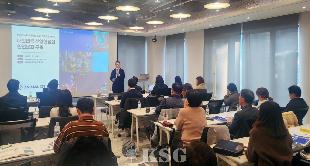



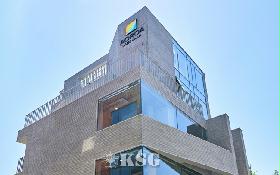
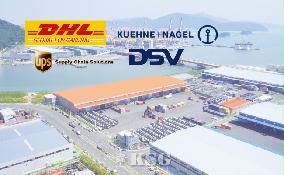

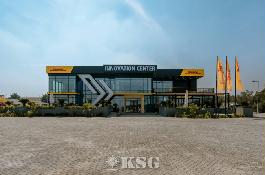
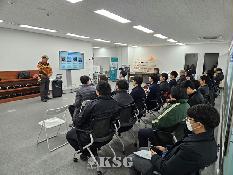
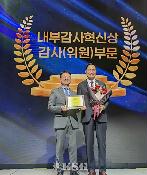
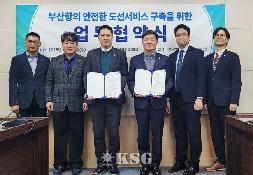
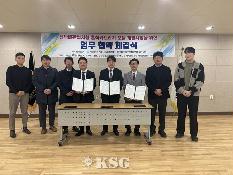

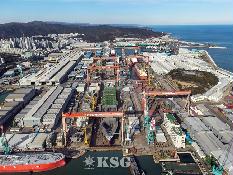
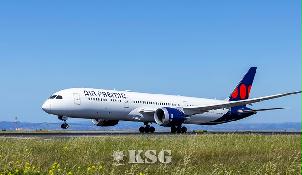
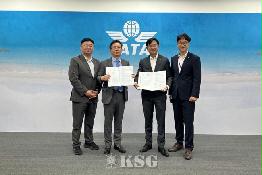
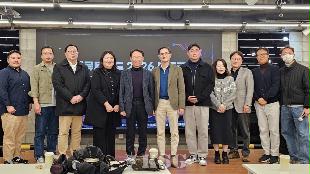
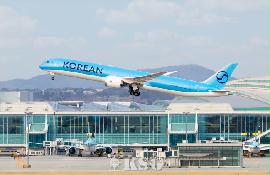


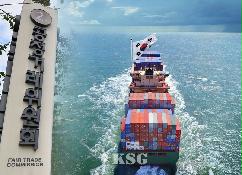
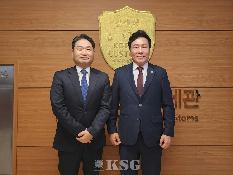

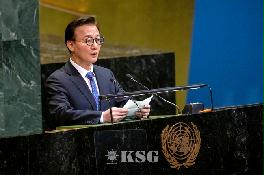
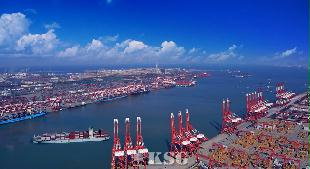
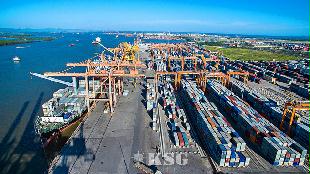
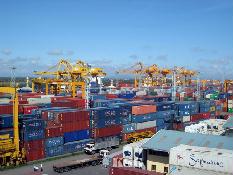






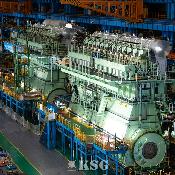
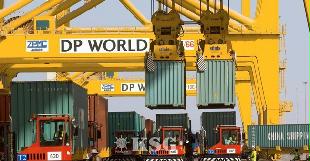

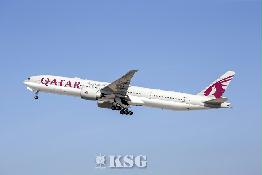





















0/250
확인